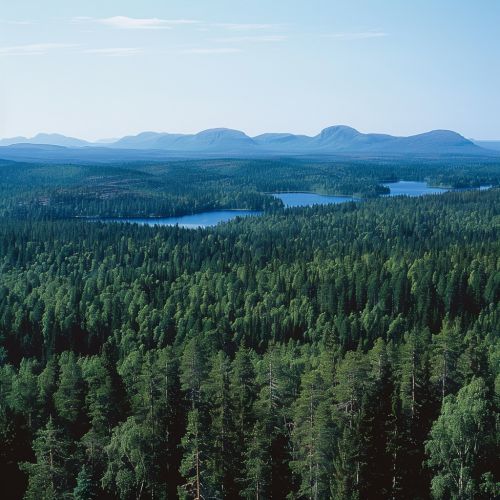Sweden
Geography
Sweden, officially known as the Kingdom of Sweden, is a Nordic country located in Northern Europe. It is the third largest country in the European Union by land area, spanning approximately 450,295 square kilometers. Sweden is characterized by its diverse geographical features, ranging from the mountainous regions in the west to the flat, coastal areas in the east. The country is largely covered by forests, accounting for about 69% of its total land area.


Climate
Sweden experiences a variety of climate conditions due to its large latitudinal range. The southern part of the country has a temperate climate, while the northern part experiences a subarctic climate. The country is known for its long, cold winters and short, mild summers. The average annual temperature in Stockholm, the capital city, ranges from -3°C in January to 22°C in July. Precipitation is distributed evenly throughout the year, with snowfall common in the winter months.
History
The history of Sweden can be traced back to the end of the last ice age, around 12,000 BC. The country has a rich historical heritage, marked by the Viking Age, the era of the Swedish Empire, and its modern history as a neutral nation. The Viking Age (800–1050 AD) was a period of expansion and exploration, while the Swedish Empire (1611–1718) marked the height of Sweden's military power. In modern times, Sweden has maintained a policy of neutrality in international conflicts, a stance that has shaped its foreign policy and international relations.
Politics
Sweden is a constitutional monarchy with a parliamentary democracy. The monarch is the head of state, but the role is largely ceremonial. The executive power is exercised by the government, headed by the Prime Minister. The legislative power is vested in the Riksdag, the national parliament, which consists of 349 members elected through proportional representation. Sweden is known for its high level of political stability, transparency, and respect for civil liberties.
Economy
Sweden has a mixed economy characterized by high levels of welfare, a modern distribution system, and a skilled labor force. It is one of the world's leading nations in terms of economic competitiveness and human development. The economy is heavily oriented towards foreign trade, with machinery, motor vehicles, pharmaceuticals, and telecommunication equipment being the main exports. The Swedish Krona (SEK) is the country's official currency.
Culture
Swedish culture is marked by a deep respect for nature, equality, and simplicity. These values are reflected in the country's social policies, lifestyle, and even design aesthetics. Swedish literature, music, and cinema have gained international recognition, with notable figures such as author Astrid Lindgren, filmmaker Ingmar Bergman, and the pop group ABBA. The country is also known for its unique traditions such as Midsummer, Lucia, and the Nobel Prize ceremonies.
Education
Education in Sweden is compulsory and free for all children between the ages of 6 and 16. The education system is divided into three stages: primary school, secondary school, and higher education. Higher education in Sweden is offered by a range of universities and university colleges, and is also free for students from the European Union, European Economic Area, and Switzerland. The country is home to some of the world's top universities, including the Karolinska Institute, Uppsala University, and Lund University.
